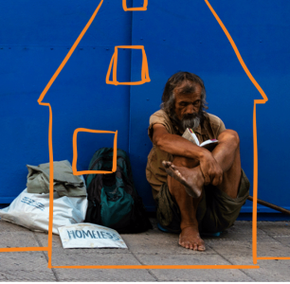Homelessness, Housing and Mental Health: Crises and Opportunities
Safe, appropriate and stable housing is a basic human right and one of the key foundations that are central to recovery from experiences of mental health issues.
For those on low incomes or with complex needs there are few housing options, and sometimes none at all. Once housed, people with mental illness experience difficulty in accessing either mental health care or residential support that is flexible and responsive.
The increasing complexity and vulnerabilities of people seeking housing, including substance misuse, domestic violence, rough sleeping, trauma, disability, poverty and hoarding and squalor each act as barriers to service and require solutions that are near-impossible to achieve by a single service.
Decreasing continuity of services and relationships also add obstacles to an already complex and confusing housing system. Demographic changes in the homeless population, such as the increasing numbers of Aboriginal people and women, require greater attention.
The good news is that a range of effective service models and integrated approaches have emerged, locally and internationally.
New models
New commissioning and investment methods are funding programs with combined housing and mental health indicators. The Housing First model is one example of a successful paradigm shift for addressing homelessness.
One-stop-shop services such as Headspace and the Foyer model provide more coordinated support for people with mental illness seeking appropriate housing. Local partnerships and shared service agreements have provided new learning on what it takes to break the cycle.
About the forum
This two day forum will bring together experts, clinicians, consumers, support workers and service managers from across sectors.
They will be provided with up-to-date evidence on what works, learn about international best practice approaches, meet specialised practitioners and engage with innovators in collaborative service provision.
Delegates will leave with new knowledge and new perspectives on the potential for services to better configure themselves to best achieve shared goals.

